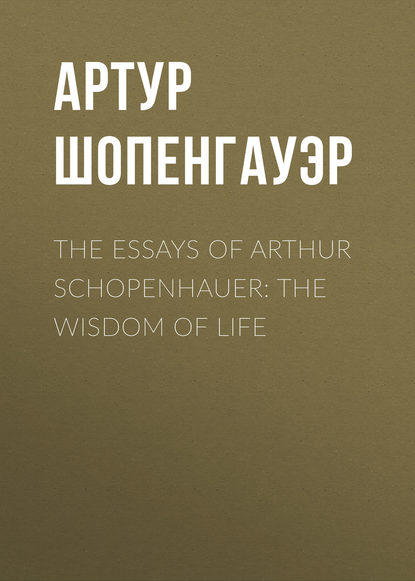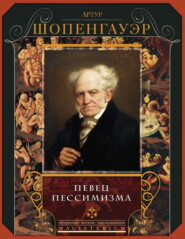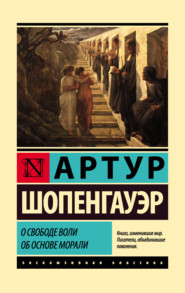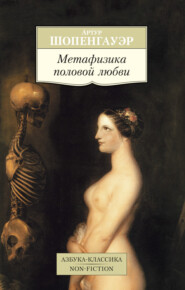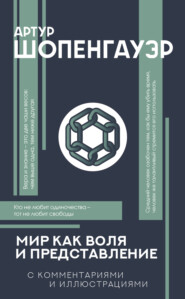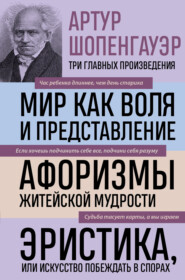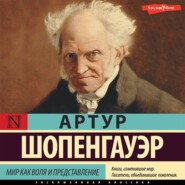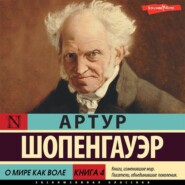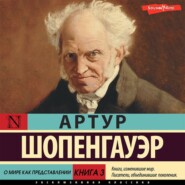По всем вопросам обращайтесь на: info@litportal.ru
(©) 2003-2024.
✖
The Essays of Arthur Schopenhauer: the Wisdom of Life
Настройки чтения
Размер шрифта
Высота строк
Поля
16
i. 7 and vii. 13, 14.
17
Ecl. eth. ii., ch 7.
18
III 1073.
19
Nature exhibits a continual progress, starting from the mechanical and chemical activity of the inorganic world, proceeding to the vegetable, with its dull enjoyment of self, from that to the animal world, where intelligence and consciousness begin, at first very weak, and only after many intermediate stages attaining its last great development in man, whose intellect is Nature's crowning point, the goal of all her efforts, the most perfect and difficult of all her works. And even within the range of the human intellect, there are a great many observable differences of degree, and it is very seldom that intellect reaches its highest point, intelligence properly so-called, which in this narrow and strict sense of the word, is Nature's most consummate product, and so the rarest and most precious thing of which the world can boast. The highest product of Nature is the clearest degree of consciousness, in which the world mirrors itself more plainly and completely than anywhere else. A man endowed with this form of intelligence is in possession of what is noblest and best on earth; and accordingly, he has a source of pleasure in comparison with which all others are small. From his surroundings he asks nothing but leisure for the free enjoyment of what he has got, time, as it were, to polish his diamond. All other pleasures that are not of the intellect are of a lower kind; for they are, one and all, movements of will – desires, hopes, fears and ambitions, no matter to what directed: they are always satisfied at the cost of pain, and in the case of ambition, generally with more or less of illusion. With intellectual pleasure, on the other hand, truth becomes clearer and clearer. In the realm of intelligence pain has no power. Knowledge is all in all. Further, intellectual pleasures are accessible entirely and only through the medium of the intelligence, and are limited by its capacity. For all the wit there is in the world is useless to him who has none. Still this advantage is accompanied by a substantial disadvantage; for the whole of Nature shows that with the growth of intelligence comes increased capacity for pain, and it is only with the highest degree of intelligence that suffering reaches its supreme point.
20
Vulgarity is, at bottom, the kind of consciousness in which the will completely predominates over the intellect, where the latter does nothing more than perform the service of its master, the will. Therefore, when the will makes no demands, supplies no motives, strong or weak, the intellect entirely loses its power, and the result is complete vacancy of mind. Now will without intellect is the most vulgar and common thing in the world, possessed by every blockhead, who, in the gratification of his passions, shows the stuff of which he is made. This is the condition of mind called vulgarity, in which the only active elements are the organs of sense, and that small amount of intellect which is necessary for apprehending the data of sense. Accordingly, the vulgar man is constantly open to all sorts of impressions, and immediately perceives all the little trifling things that go on in his environment: the lightest whisper, the most trivial circumstance, is sufficient to rouse his attention; he is just like an animal. Such a man's mental condition reveals itself in his face, in his whole exterior; and hence that vulgar, repulsive appearance, which is all the more offensive, if, as is usually the case, his will – the only factor in his consciousness – is a base, selfish and altogether bad one.
21
Odyssey IV., 805.
22
Epigrammata, 12.
23
Eth. Nichom. x. 7.
24
iv. 11.
25
: Antigone, 1347-8.
26
Ajax, 554.
27
Ecclesiasticus, xxii. 11.
28
Ecclesiastes, i. 18.
29
Cf. Diogenes Laertius, Bk. x., ch. xxvii., pp. 127 and 149; also Cicero de finibus, i., 13.
30
xviii., 130-7.
31
Part III., Act 1., Sc. 4.
32
Boswell's Life of Johnson: ann: 1776, aetat: 67.
33
Translator's Note. – Schopenhauer is probably here making one of his most virulent attacks upon Hegel; in this case on account of what he thought to be the philosopher's abject servility to the government of his day. Though the Hegelian system has been the fruitful mother of many liberal ideas, there can be no doubt that Hegel's influence, in his own lifetime, was an effective support of Prussian bureaucracy.
34
Horace, Epist: II., 1, 180.
35
Let me remark that people in the highest positions in life, with all their brilliance, pomp, display, magnificence and general show, may well say: – Our happiness lies entirely outside us; for it exists only in the heads of others.]
36
Scire tuum nihil est nisi te scire hoc sciat alter, (Persins i, 27) – knowledge is no use unless others know that you have it.
37
Hist., iv., 6.
38
Translator's Note. – It should be remembered that these remarks were written in the earlier part of the present century, and that a German philosopher now-a-days, even though he were as apt to say bitter things as Schopenhauer, could hardly write in a similar strain.
39
De finilus iii., 17.
40
Disc: iii. 17.





